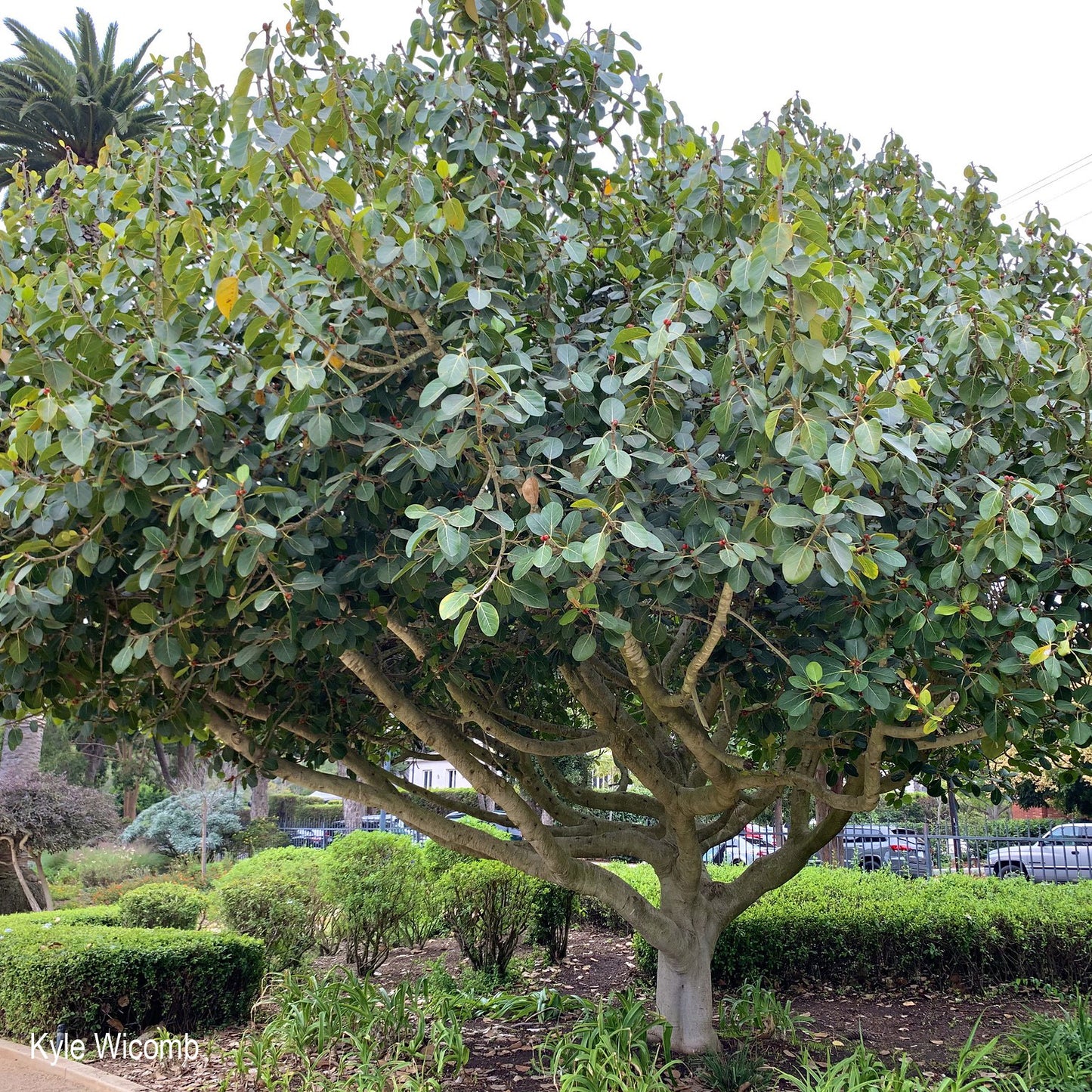VIRIAR
Ficus benghalensis - Banyan Tree - 250 pieces seeds
Ficus benghalensis - Banyan Tree - 250 pieces seeds
No se pudo cargar la disponibilidad de retiro
Plant Description
Name: Ficus benghalensis
Common Name: Banyan Tree, Indian Banyan, Strangler Fig
Ficus benghalensis, commonly known as the Banyan Tree, Indian Banyan, or Strangler Fig, is a massive evergreen tree native to the Indian subcontinent. Renowned for its vast canopy and aerial roots, this tree can cover a large area and is often considered a symbol of longevity and stability in various cultures. The Banyan Tree starts as an epiphyte, germinating in the crevices of a host tree. As it grows, it sends down aerial roots that eventually become thick, woody trunks, allowing the tree to spread horizontally over a large area.
The leaves of Ficus benghalensis are large, leathery, and dark green, providing dense shade. The tree also produces small, round fruits that are orange to red when ripe, which are an important food source for birds and other wildlife. In its native range, the Banyan Tree is often found near temples, where it is revered and protected. It is also known for its ability to purify the air and provide a cool microclimate under its canopy.
Cultivation of Ficus benghalensis
Conditions:
- Light: The Banyan Tree thrives in full sun to partial shade. It needs plenty of sunlight to support its rapid growth, especially when young.
- Temperature: Ficus benghalensis prefers warm climates, with ideal temperatures ranging from 20-35 °C. It is not frost-tolerant and should be protected from temperatures below 10 °C.
- Soil: This tree is highly adaptable to various soil types, including sandy, loamy, and clay soils, as long as the soil is well-draining. It can tolerate poor soils and even withstand some degree of salinity.
- Water: While the Banyan Tree is drought-tolerant once established, it requires regular watering during the first few years of growth. Ensure the soil remains moist but not waterlogged, especially during dry periods.
Planting and Care:
- Planting: Plant Ficus benghalensis in a spacious area where it can spread without restriction. Ensure the location has well-draining soil and receives ample sunlight. If planting in a garden, keep a significant distance from buildings and other trees due to its expansive root system.
- Fertilization: The Banyan Tree does not require heavy fertilization. However, adding organic matter or compost to the soil during planting can promote healthy growth. An annual application of a balanced fertilizer during the growing season can also support its development.
- Maintenance: Pruning is essential to manage the tree's size and shape, especially in smaller gardens. Remove dead or damaged branches and control the growth of aerial roots if needed. The Banyan Tree is generally resistant to pests and diseases, making it low-maintenance.
Growing from Seeds
- Seed Preparation: Collect seeds from ripe fruits. Clean the seeds by removing the pulp and allow them to dry slightly before planting.
- Sowing: Sow the seeds in a well-draining soil mix, such as a blend of sand and compost. Lightly press the seeds into the soil surface without burying them deeply.
- Germination Conditions: Place the seed tray in a warm, sunny location with temperatures around 25-30 °C. Keep the soil consistently moist but not waterlogged. Germination can take a few weeks.
- Care for Seedlings: Once the seedlings emerge, provide them with plenty of light and water regularly. As they grow, transplant them into larger pots or directly into the ground. Ensure the young plants are protected from frost and harsh conditions.
Growing Ficus benghalensis from seed can lead to a majestic tree that provides shade, beauty, and ecological benefits, making it a treasured addition to any large garden or landscape.
Shipping & Returns
Shipping & Returns
















